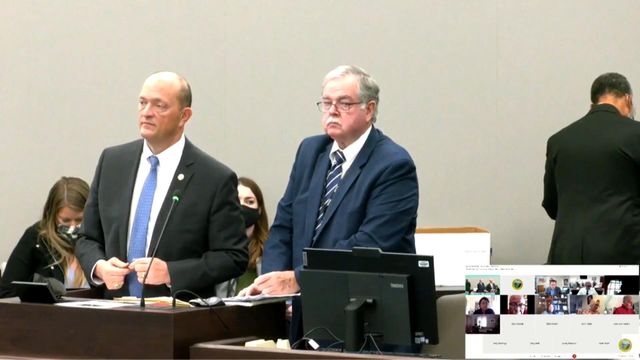State moves to put $1.6 billion more in federal pandemic money toward schools
Bill also includes money for rental assistance and a second chance at $335 grants for parents.
Posted — UpdatedThe bill passed the Senate unanimously and without debate Wednesday afternoon. It's expected to pass the House Thursday and head to Gov. Roy Cooper for his quick signature.
The money can be used for a range of things laid out by Congress, and it will get broken up among local school districts based largely on their number of Title 1 students, a federal measure focused on income, said House Appropriations Co-Chairman Jason Saine, R-Lincoln.
This is the second major tranche of federal pandemic relief funding for North Carolina schools, which got an outlay of about $396 million in a previous round. Much of that money was for school lunch and breakfast programs, summer learning programs and to buy personal protective equipment, as well as the mobile devices and internet hot spots needed to expand online learning programs.
General Assembly staff told lawmakers Wednesday that there's still about $250 million of that first round of funding available to districts.
The new bill is the first of at least two measures expected this legislative session to appropriate new pandemic relief dollars. It also includes a $546 million infusion to the state’s emergency rental assistance program, which has doled out more than $133.5 million to help pay rent and utilities for more than 35,000 households.
An additional $155 million in rental assistance in the new bill will bypass the statewide program and go to local governments with more than 200,000 residents.
The bill also gives parents of school-aged children more time to apply for $335 state grants to help pay for online learning expenses, and it provides $39 million to expand broadband in rural areas.
The measure also has $95 million in it to help health care providers and local health departments provide coronavirus vaccinations.
Local school districts will have decisions to make over how to spend the education money, within federal rules. State Department of Public Instruction spokeswoman Blair Rhoades said Superintendent Catherine Truitt is putting together a task force to help districts through the process.
"A key part of this task force will be an after-action evaluation, which will be used to understand how COVID recovery funds were used by each district and provide the department with a deeper understanding of the regional differences and needs across school districts statewide," Rhoades said in an email. "A major goal of this task force is to ensure that federal funding is used in an effective way such that it improves student outcomes."
• Credits
Copyright 2024 by Capitol Broadcasting Company. All rights reserved. This material may not be published, broadcast, rewritten or redistributed.






